House Party Murder Rap (Evie Parker
Mystery 1) Sonia Parin
Visit to download the full and correct content document: https://textbookfull.com/product/house-party-murder-rap-evie-parker-mystery-1-soniaparin/

More products digital (pdf, epub, mobi) instant download maybe you interests ...

Murder at the Car Rally (Evie Parker Mystery 3) Sonia Parin
https://textbookfull.com/product/murder-at-the-car-rally-evieparker-mystery-3-sonia-parin/
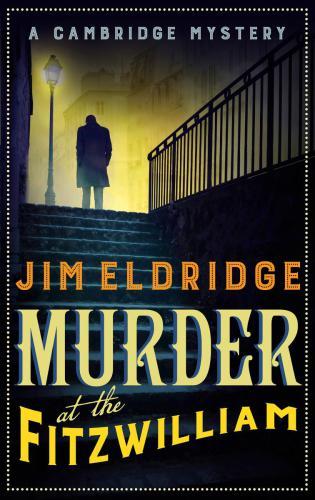
Murder at the Fitzwilliam Museum Mystery Series 1 Jim Eldridge Et El
https://textbookfull.com/product/murder-at-the-fitzwilliammuseum-mystery-series-1-jim-eldridge-et-el/
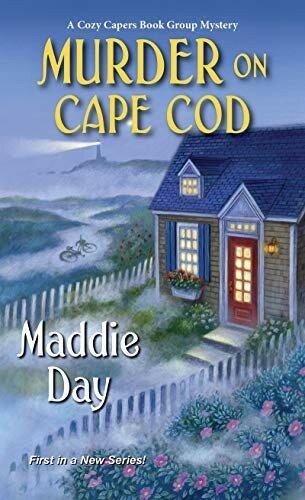
Murder On Cape Cod Cozy Capers Book Group Mystery 1
Maddie Day
https://textbookfull.com/product/murder-on-cape-cod-cozy-capersbook-group-mystery-1-maddie-day/

A Murder for the Books Blue Ridge Library Mystery 1
1st Edition Victoria Gilbert
https://textbookfull.com/product/a-murder-for-the-books-blueridge-library-mystery-1-1st-edition-victoria-gilbert/

Ryder The Lost Breed MC 1 1st Edition Ali Parker Weston
Parker Parker Ali Parker Weston
https://textbookfull.com/product/ryder-the-lost-breed-mc-1-1stedition-ali-parker-weston-parker-parker-ali-parker-weston/
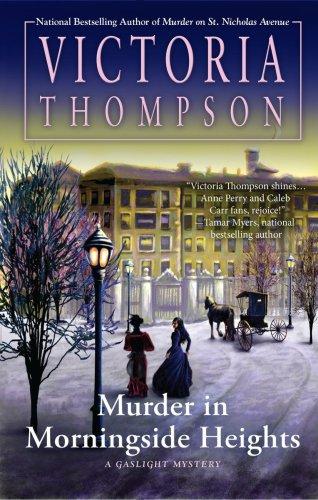
Murder in Morningside Heights - Gaslight Cozy Mystery
19 Victoria Thompson
https://textbookfull.com/product/murder-in-morningside-heightsgaslight-cozy-mystery-19-victoria-thompson/
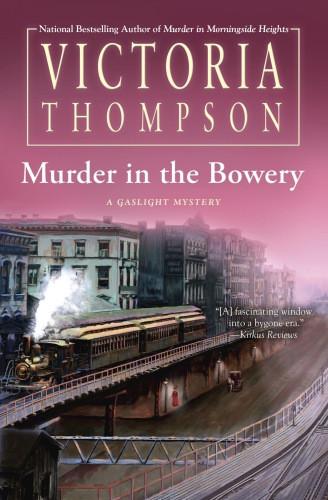
Murder in the Bowery - Gaslight Cozy Mystery 20
Victoria Thompson
https://textbookfull.com/product/murder-in-the-bowery-gaslightcozy-mystery-20-victoria-thompson/
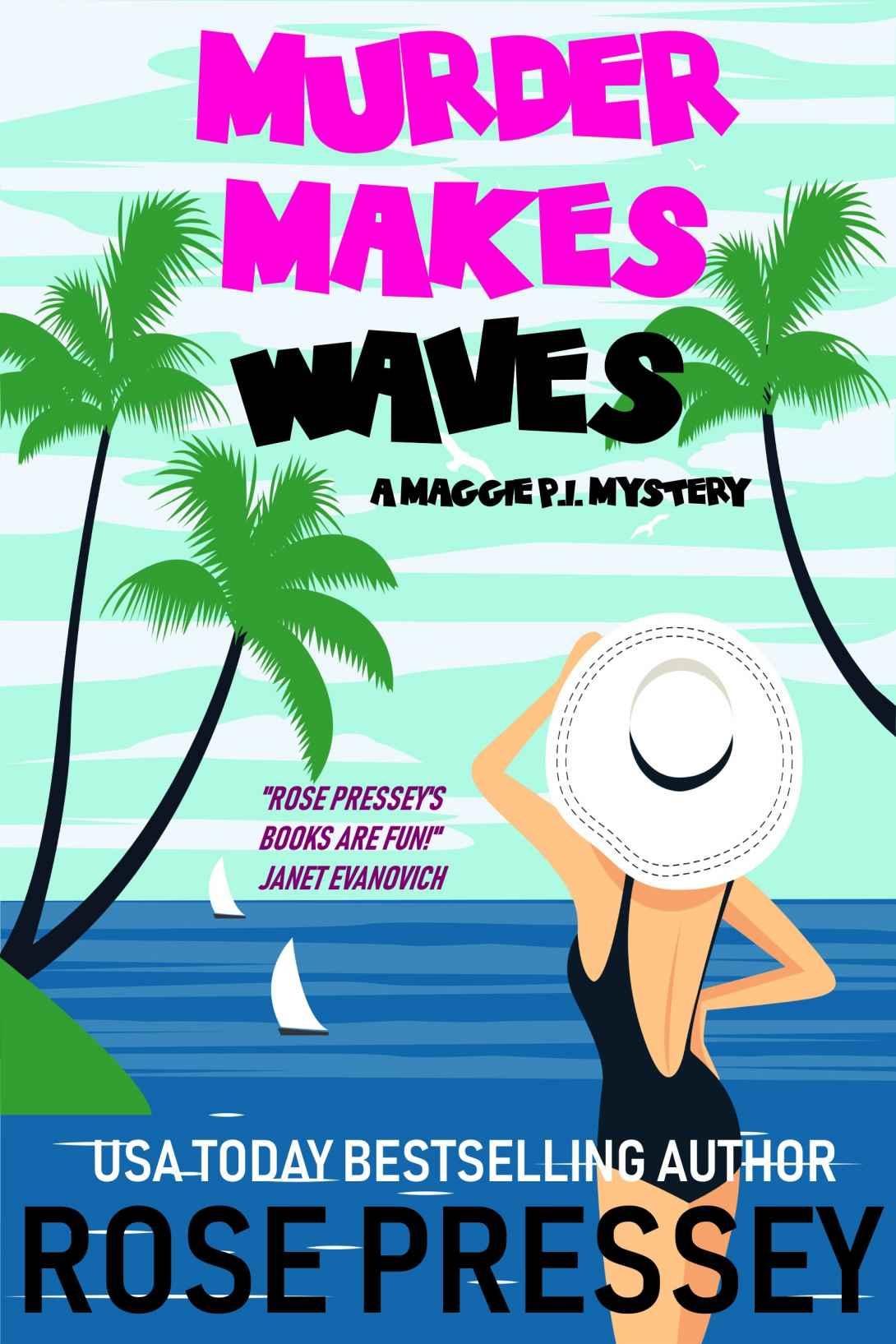
Murder Makes Waves Maggie PI Cozy Mystery 06 Rose
Pressey
https://textbookfull.com/product/murder-makes-waves-maggie-picozy-mystery-06-rose-pressey/
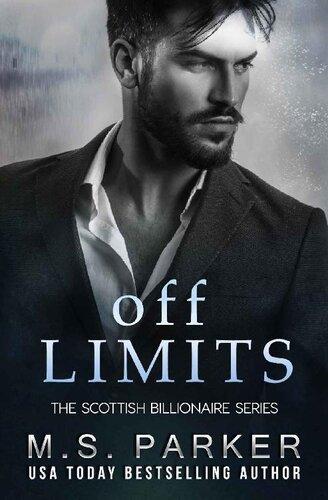
Off Limits (The Scottish Billionaire #1) 1st Edition M.
S. Parker [Parker
https://textbookfull.com/product/off-limits-the-scottishbillionaire-1-1st-edition-m-s-parker-parker/
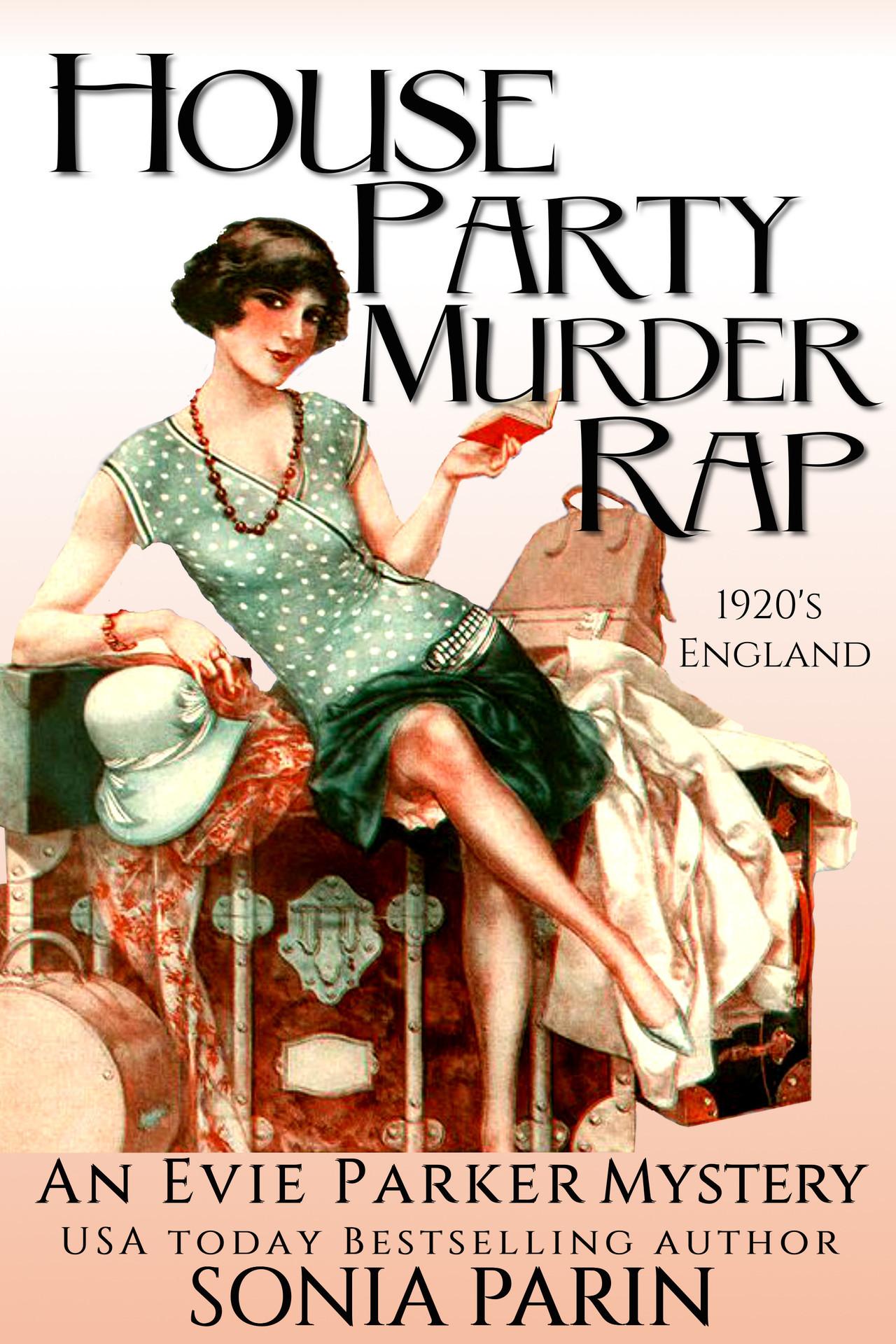

HOUSE PARTY MURDER RAP: A 1920S HISTORICAL COZY MYSTERY
An Evie Parker Mystery Book 1
SONIA PARIN
House Party Murder Rap Copyright © 2018 Sonia Parin
No part of this publication may be reproduced in any form or by any means, without the prior written permission of the author, except in the case of brief quotations embodied in critical articles and reviews.
This is a work of fiction. Names, characters, places and incidents are the product of the author's imagination or are used fictitiously. Any resemblance to actual persons, living or dead, organizations, events or locales is entirely coincidental.
Created
with Vellum
About this book
Chapter 1
Chapter 2
Chapter 3
Chapter 4
Chapter 5
Chapter 6
Chapter 7
Chapter 8
Chapter 9
Chapter 10
Chapter 11
Chapter 12
Chapter 13
Chapter 14
Chapter 15
Chapter 16
Chapter 17
Chapter 18
Chapter 19
Chapter 20
Chapter 21
Chapter 22
Chapter 23
Chapter 24
Chapter 25
Contents
Chapter 26
Epilogue
Author Notes
About this book
About this book
1920s England. Light-hearted historical cozy mystery.
Two people have been targeted. Who stands to inherit? Who has the most to lose? Evangeline ‘Evie’ Parker, Countess of Woodridge, thinks it’s nothing but an accident but then an attempt is made on her host’s life. Suddenly, all the guests attending the Duke of Hetherington’s house party think they are being targeted. Who will be next? Evie and her new chauffeur form an unlikely alliance to discover as much as they can before the killer can get it right.
Characters appearing in House Party Murder Rap
Evangeline ‘Evie’ Parker, Countess of Woodridge
Tom Winchester: Chauffeur/bodyguard
Caro: lady’s maid
Yarborough Manor
Albert Brenton – Bicky to his friends: His Grace, The Duke of Hetherington
Clara: Her Grace, The Duchess of Hetherington
The Dowager Duchess of Hetherington
Larkin: Butler
Stevens: Valet
Yarborough Manor Guests
Charles: Viscount Maison
Lord Matthew Chambers
Lady Charlotte Chambers
Mr. Mark Harper
Lady Hammons (Penelope)
Lady Porteus (Elizabeth)
Lady Aspendale (Gloriana)
Neighbors
Lady Wainscot
Eugene Wainscot
Clarissa Wainscot
Ruth: Maid
Lotte Chambers
The Village
Marceline’s SalondeBeaute
Anna: sales assistant
Dr. Higgins
If you wish to receive news about my next release: Follow me on Bookbub
Spring,1920
Chapter One
The talk of the town
HainsleyHall,Yarborough,Yorkshire
Lady Wainscot settled down to read the missive which had been delivered earlier that day. Her morning had been filled with last minute preparations for that weekend’s house party and she’d only now managed to find the time to attend to other matters.
Her eyes widened with each word she read.
“So, it’s true,” she murmured to herself. “Evangeline Parker will be arriving this afternoon.” Her lips pursed with obvious dissatisfaction. She had heard a rumor, but she hadn’t thought it possible.
Actually, she hadn’t wanted to believe it.
Not only had Evangeline Parker returned from her extended trip to America, but she had also decided to revisit the scene of her crime.
This weekend, of all weekends.
Pressing her hand to her chest, Lady Wainscot drew in a sharp breath. With numerous guests arriving within the hour, she wouldn’t be able to make the rounds and find out more.
Succumbing to the feeling of utter defeat, her hand dropped to her lap. A second later, she perked up. She would send someone else to make inquiries and report back to her.
Determined to take prompt action, she rang the bell. She’d expected the butler to make an appearance but, instead, the maid rushed in. She supposed it had something to do with the household being in an upheaval as everyone rushed around ensuring everything met her exacting standards.
Surging to her feet, Lady Wainscot fussed with her skirt and, lifting her chin, she straightened into her trademark imperious pose. “Ruth, would you please tell the girls to come down this instant. I need to speak with them.”
“As you wish, milady.”
“Tell them to hurry,” Lady Wainscot urged.
“Yes, milady.”
As the maid turned to leave, another thought occurred. “Ruth. Tell them they’ll be riding to Yarborough Manor.”
The maid’s brow furrowed slightly .
“Well? Go on.”
“Begging your pardon, milady. I just finished helping Miss Eugene into her new dress. It took forever to do all those little buttons up. She’s not going to be pleased about having to change again… what with the guests arriving so soon…”
Lady Wainscot gave the maid a slight lift of her eyebrow, a sure sign of her displeasure and growing impatience.
“Yes, milady. Right away.”
As soon as the maid disappeared to deliver her instructions, Lady Wainscot drew in a calming breath and released it as a shuddering sigh.
Evangeline Parker.
Here to ruin everything for her. Again.
“Over my dead body.”
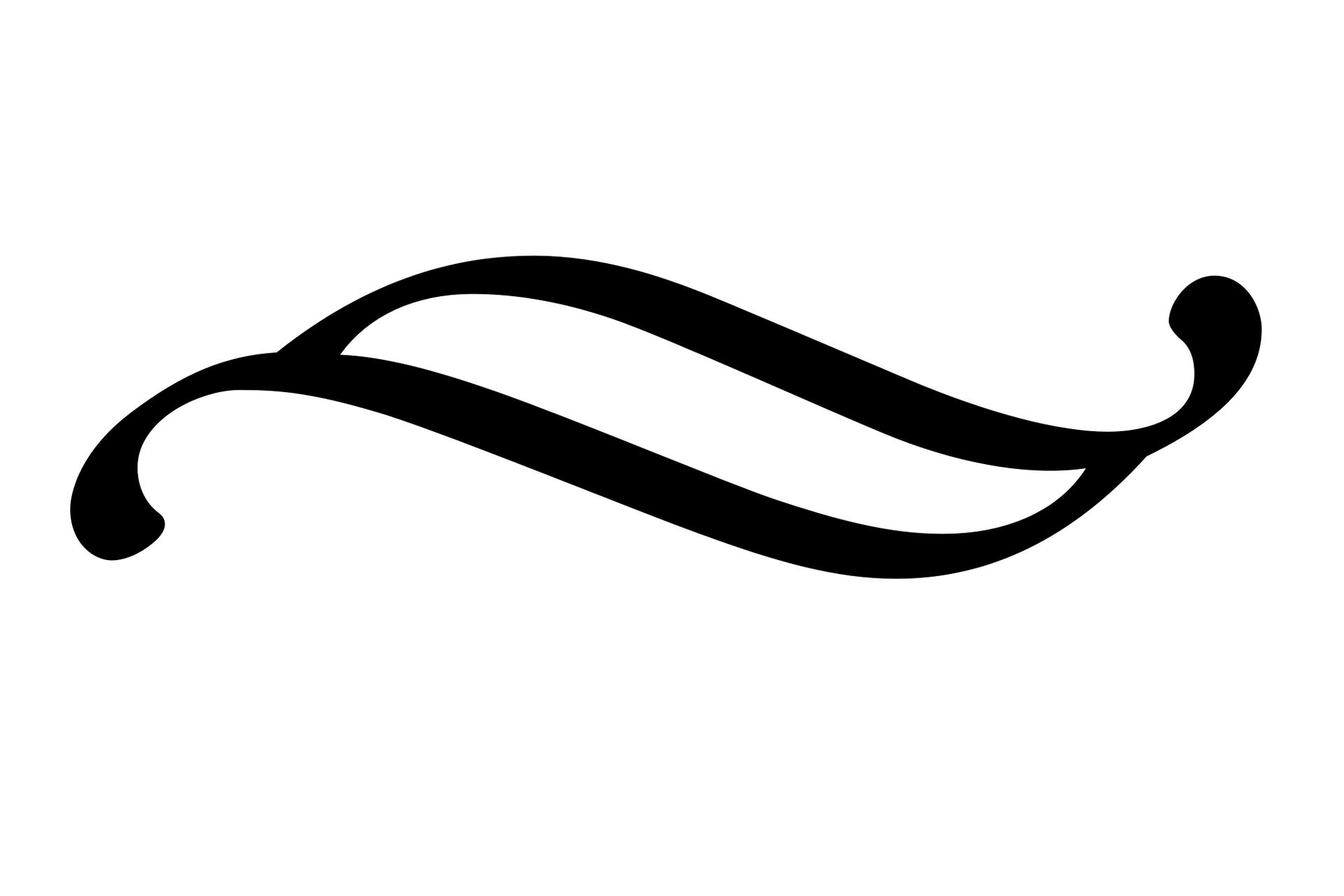
TheoutskirtsofYarborough,Yorkshire
Evangeline’s eyes fluttered open. It took her a moment to engage her mind. When she did, she emitted a light groan.
They were trekking through the Yorkshire countryside, making their way to Yarborough Manor for the weekend house party, one of many events in the county organized as a season opener.
If given the choice, she would much rather have stayed at the London house enjoying her semi reclusive lifestyle. However, after two months of limiting her social outings to a few dinners and afternoon teas, she had run out of excuses and so she had sat down to go through the invitations which had begun pouring in the moment she had returned to London.
She wished news about her return to England hadn’t spread quite so quickly. In her opinion, this only gave rise to speculation about her reasons for returning; assumptions she could do without since they would all, no doubt, focus on her marital status...
“If only people would simply let it go,” she mouthed.
Ten years before, in the spring of 1910, she had first set foot on English soil as a spirited debutante urged by her mama to make the best of her season and land herself a titled gentleman.
As a young girl, Evie had traveled the length and breadth of her homeland, including little known tracks of wilderness, and had been eager to experience something vibrantly new.
Unfortunately, she had been disappointed. Instead of the excitement she had yearned for, she had found everyone and everything in England deeply steeped in old traditions and rules. More than she had ever encountered, Evie thought. Feeling stifled, she had pleaded with her mama to take her back home, all to no avail.
Then, to her surprise, she had fallen in love and she had remained in love until destiny had dealt her a hard, cruel hand.
Everything had been altered. She had become a widow. Her first instinct had been to flee back home to America and stay there but, after two years of being cocooned in familiar surroundings, she had made the firm decision to return to England.
She had as yet to determine if this had been the right step to take. While she’d had plenty of time to get used to her new status as a single woman and to overcome the pain of her loss, which everyone had promised would subside in due course, she knew the memories would surely surge to the surface again.
Such is life, she thought and switched her attention to the here and now.
She supposed it would be fabulous to catch up with Bicky.
Albert Brenton, Duke of Hetherington, Bicky to his close friends and family, had been her husband’s oldest friend. He, of all people, would understand why she’d chosen to stay away.
“Tom?”
“Yes, ma’am.”
“I slept like a log. The last time I came out to Yorkshire, the driver hit every pothole along the way. You are marvelous.”
“Thank you, ma’am.”
Evie pressed her lips together to stop herself from correcting him. Tom Winchester had been in her employ for two months and he still insisted on calling her ma’am, but at least he had stopped using her title.
She hoped she hadn’t confused the situation by not providing him with an alternative form of address. For now, it would have to be ma’am. At least until she settled on something less formal. How would she feel if her chauffeur called her Evie?
Of course, despite protocol, she hadn’t thought twice about embracing a first name practice. In reality, she should have addressed her chauffeur as Winchester, but Evie preferred Tom. And, in this instance, she wished to have her way—something that seemed to be happening with increasing regularity, she couldn’t help thinking.
During her recent journey back home to America she had allowed all the formalities that accompanied her life in England to lapse. Perhaps a part of her had hoped Tom would help her maintain it by adopting a more casual approach. It would certainly be a lovely bridge between the life she led and the life she yearned for. Surely that had been her grandmother’s intention when she’d arranged for Tom to become her chauffeur and travel back to England with her.
“Tom. Have you ever lived in the country?”
“On occasion, ma’am.”
Evie waited for him to provide more information but it seemed, where his private life was concerned, he would remain a closed book.
Not if she had her way…
“Tom, I believe we are now traveling through the Duke’s land. Have you ever seen anything so vast?”
Tom appeared to weigh his words before responding, “Yes, ma’am. In Texas. Although, this is much greener.”
Surprised to hear more than a yes or no answer, Evie smiled. The distraction she has sought did not last.
A sense of trepidation swept through her. The last time she had traveled this way, she had been blissfully happy…
Closing her eyes, she recalled her granny’s warning to brace herself because, in her opinion, Evie’s return would be seen as throwing down the gauntlet, so she shouldn’t be surprised when the reprisals began shooting her way.
Young, wealthy, titled… and available.
Yes, some people would perceive her presence as flaunting her availability. However, they would be wrong.
She had no intention of marrying again. Ever.
Chapter Two
“
The Red Sox v The Yankees
How are you enjoying the scenery, Tom? I believe this is your first trip to the English countryside.”
Several seconds ticked by before Tom answered. “It’s a pleasant change from London, ma’am.”
Yes, she would have to agree. A few days away from the busy and frenetic activities of town living would do her a world of good. At least, she hoped so. “Tom…”
“Yes, ma’am.”
“Do you miss home?”
“I can’t say that I do, ma’am.”
“Really?” Whenever she came across someone from her neck of the woods, all they could talk about was how much they missed just about everything, which made her wonder why they ever bothered making the long transatlantic journey.
“Do you follow any games, Tom?” Evie asked, although she already knew the answer. However, if she didn’t encourage a conversation, he would quite happily drive the rest of the way in complete silence.
“Baseball, ma’am.”
“Let me guess, you’re a Yankee’s fan.” Leaning slightly forward, Evie saw his jaw muscles clench.
“Red Sox, ma’am.”
“Oh, I beg your pardon,” she said lightly. “My mistake. Of course, I’d forgotten. You originally hail from Boston.” She tried to hide her smile. Her tone filled with innocence as she said, “I’m partial to the Yankees. I wonder… is this going to affect our working relationship?”
His jaw muscles twitched again. “I don’t see why it should, ma’am.”
Of course, it wouldn’t. But she couldn’t help predicting many lively conversations.
It had only been a few months since the Red Sox had shipped Babe Ruth to the Yankees in exchange for crisp stacks of redeemable U.S. currency. Many fans had been aghast that such a talent would be cast off while others had welcomed the change in favor of a more cohesive team rather than a one-man show.
Their loss and the Yankee’s win, Evie thought .
“You’ll have to keep me informed, Tom. Sometimes, I become so immersed in the society pages, I don’t find the time to get to the sports coverage.” Evie wondered if this would help lower the barrier he seemed so intent on maintaining. She hoped it would.
Leaning forward slightly, she said, “We’re coming up to the village now. I want to point out the pub.”
When her granny had asked her to look after Tom, Evie had taken the request to heart. So, she had sent a message ahead to organize a room for Tom at the local pub.
Servants working in large estates were used to guests bringing their own staff, but Evie had heard too many stories about servants imposing their stalwart rules of etiquette and strict class system.
Knowing Tom had never worked in service before and having her own two pennies worth of opinions about the often tedious snobbery of drawing rooms, she had decided to spare him the hierarchical downstairs experience.
Pointing ahead, she said, “There it is. The Bow and Arrow.” She caught sight of his small smile. “It’s a quaint name and rather a pleasant change from the usual Royal Arms or Queen’s something or other. Then again, being new to England, you might not have noticed the practice of giving pubs rather engaging names.”
“Actually, I have noticed, ma’am. In fact, I was thinking of the Hang Drawn andQuarteredor the IAm theOnlyRunningFootman pubs, both in London.”
“Oh, yes. That one is in Charles Street, Mayfair. And, you’re right, there are some unusual names.” She tapped her chin and tried to recall a few names she’d encountered during her various jaunts around the countryside. “TheCase isAltered, in Middlesex and The BucketofBloodin Cornwall come to mind.” She settled back into her seat. “I believe you will find The Bow and Arrow quite comfortable.”
“I’m sure I will, ma’am.” He cleared his throat. “I hope I’m not speaking out of turn, but are you sure you want to dispense with my services during your stay, ma’am?”
“Yes, quite sure. These type of house parties are well orchestrated. There will be lunches and dinners and in-between, walks and rides and perhaps some shooting. All taking place within the estate. So, you see, you can enjoy a nice vacation.”
As they entered the village, Tom slowed down to an appropriate speed. In previous years, Evie had been a regular guest at
Yarborough Manor, the Duke of Hetherington’s family seat. In fact, she had met her husband at one of Bicky’s house parties.
After her marriage, there had been a number of times when they had enjoyed extended visits and Evie had often wandered around the small village, acquainting herself with some of the locals.
“Tom, could you please stop the car. I’d like to drop in on Marceline’s Salon de Beaute. They stock the most wonderful primrose scented soap. At least, I hope they still do. I’d like to place an order.”
Evie recalled Marceline’s Salon de Beaute’s humble beginnings selling anything and everything from dresses to locally made soaps as well as the emerging ladies’ beauty care products. Now, it seemed, they had revamped the business, seemingly aspiring to cater to a more exclusive clientele, but in reality, netting their business from any female intent on staving off the ravages of time.
Evie strode across the square, stopping a couple of times to give way to vehicles. The last time she had visited the village, motor vehicles had been a rare sight. She spotted a horse and cart outside a store and made a point of committing the image to memory, since she doubted she would see many more in the near future.
Along the way, she exchanged smiles with the local villagers she encountered, even though she failed to recognize most of them. It didn’t surprise her to see new faces as the last couple of years had introduced many changes with people moving to different towns or large cities. She had heard say some people had abandoned their lives of service and had moved on to more lucrative jobs in stores or factories.
A man tipped his hat at her. Another one stopped to let her through. She saw a man standing by Marceline’s salon, the sleeve of his coat pinned up. A war casualty, Evie thought. A moment later, a lady emerged from the store and, joining him, they strode away together.
When she entered the store, a delicate doorbell announced her entrance.
“Lady Woodridge!” the young woman behind the counter exclaimed.
Evie gave her a warm smile. “Hello, Anna. You look splendid. I love your new hairstyle.” The last time she’d seen her, Anna had just started out in the store and had worn her hair in braids twisted and gathered into a neat bun. Now, she sported the current Parisian rage; a fashionable bob with neat rows of delicate waves.
“Anna, I would like to order some of your lovely primrose soap. Do you still carry it?”
“Yes, indeed, milady. Would you like it sent up to the house?”
“Yes, please. I’m spending a few days at Yarborough Manor,” Evie confirmed.
Anna nodded. “I’ll send the delivery boy out this afternoon.”
Thanking her, Evie turned to leave when she noticed an eye-catching display. “Oh, what are these? ”
Anna picked up one of the tubes and presented it with a flourish. “Cupids Bow. A new shade by Helena Rubinstein. Offering perfectly curved lips with professional deftness.”
“What a marvelous shade. Include one of those too, please.”
“Certainly, milady.”
Evie couldn’t help noticing Anna’s subtle gesture toward a sign on the counter and wondered if she had employed the same subtle tactic to draw her attention to the lipstick.
“Day beauty care?” Evie asked, her voice filled with awe. “Is that a new service?”
“Yes, indeed.”
“By appointment only,” Evie read. “I wouldn’t mind trying it.” Before her journey to England, she had stopped for several days in New York and had indulged in a day of beauty at Helena Rubinstein’s main salon. It had done wonders for her complexion, or so she’d been told. Her face had certainly felt pampered after the treatment. “I’ll send word later on with a suitable time. Or perhaps I could decide now. Would tomorrow be too soon?”
Anna drew out an appointment book and, taking the greatest care, wrote Evie’s name.
As she watched her, Evie sensed she had drawn the attention from another customer in the store. Turning slightly, Evie studied the woman. It took her a moment to place the lady who stood near a display of face creams casting furtive glances her way.
Lotte Browning, married to the local solicitor. Her father had been a Baron and she had aspired to marry a titled gentleman but, after several failed seasons, she had given up and had accepted Mr. Browning’s humble proposal. According to the rumor mills, Mrs. Lotte Browning would continue to hold on to her aspirations until the day she died.
To Evie’s surprise, Lotte bobbed a curtsey.
To her even greater surprise, Lotte then scurried out of the store. Smiling, Evie returned her attention to the young salesgirl.
“It seems I have been away too long, but it’s lovely to be back.”
Content with her purchases, Evie strode out of the store. As she crossed the square again, she noticed Lotte Browning standing nearby looking at a store window. Or rather, pretending to look while her attention clearly remained pinned on Evie.
Nothing but curiosity, Evie thought, determined she would not let it bother her, even though she had heard rumors about Lotte Browning’s stalwart objections to Evie’s marriage. Many had shared her sentiments. In fact, to Evie’s astonishment, the news had caused
ripples of discontent right across the county’s drawing rooms and beyond…
About to reach the car, Evie noticed a man staring at her. When she met his gaze, he pushed off and strode off, his pace hurried. It seemed she’d attracted the attention from more than one person, she thought.
Lotte Browning remained standing by the store window which made Evie wonder what she could find so enthralling.
She smiled at Tom. “I’ll only be another moment.” A few steps brought her up the store holding Lotte Browning’s attention.
Farm equipment?
Evie continued on and entered the store next door, moments later, she emerged with a small bag of mints.
Lotte Browning saw her coming out and swiftly looked away.
Humming a tune under her breath, Evie returned to the car and offered Tom a mint. He shook his head and thanked her.
“Go on. Have one.”
Relenting, Tom took one and held the door open for her.
Evie settled into the car and they were promptly on their way again driving through the quaint village until they were once again in the open road admiring the lush green hills of the Yorkshire countryside.
As she gazed out at the meadows, Evie thought about Lotte. She would no doubt be making haste and rushing to inform as many people as she could about the notorious Evangeline Parker’s arrival in the county. Evie knew very few people, if any, would bother to use her rightful title when gossiping about her. Although, they would display all manner of politeness while out in public.
As she gazed out the passenger window, Evie thought she caught sight of a glint of light reflected from within the copse of trees lining
the road.
“Tom, I think birdwatchers are out and about. I have an uncle who is as migratory as the birds he chases around the country. He simply adores his hobby.”
The car moved along the winding road and onto a clearing where she saw the flash of light reflected again.
Evie guessed she had become the birdwatcher’s new interest and imagined the person rushing home to declare he had personally witnessed the arrival of ‘that Parker woman’.
She was about to look away when she saw a flock of birds taking flight, squawking as they flew off in an obvious state of panic. A concerned look crossed Evie’s face. She leaned forward only to be jerked back when the car suddenly jolted.
In the next instant, the car swerved.
“Get down!” Tom shouted at the same time as his hand shot out, his palm extended as if to block something .
He grabbed hold of the steering wheel and brought the car to a halt, by some miracle managing to avoid rolling into a ditch by a mere few inches.
Tom swung around to look at her. “Are you all right, ma’am?”
“Y-yes.” Evie straightened and adjusted her hat. “What happened?”
Instead of answering her, Tom jumped out of the car. He rushed from one end of the vehicle to the other. Evie imagined he wanted to inspect the tires for possible damage. When he finished, he jumped in and got them moving again. Although, not at the sedate pace they’d been traveling at. Instead, the car moved at full speed.
Evie held on for dear life. She barely had time to notice Yarborough Manor coming into view before they sped past the gatehouse and along the long driveway.
“Tom?” Evie exclaimed.
Leaning forward, he looked about. Yarborough Manor sat in the middle of an expansive park but Tom’s attention appeared to be speared toward the copse of trees in the distance.
He finally brought the car to a stop in front of the impressive porticoed entrance and after a few moments, his hands released their hold on the steering wheel and he sat back saying, “I’m sorry about that, ma’am. The sun hit my eyes and I lost control of the vehicle.”
The sun?
When he turned, he looked at her with steady eyes as he again apologized and promised it would never happen again.
The sun…
Hit his eyes?
Evie stared right back at him and wondered why he had just lied to her.
Chapter Three
House guests should never arrive bearing ill tidings
YarboroughManor,theDukeofHetherington’scountryestate
Feeling more stunned than shaken, Evie said, “Whatever happened out there had nothing to do with the sun hitting your eyes.”
Tom turned slightly. His blue eyes, made more intense by dark lashes, lifted, the visor from his chauffeur’s cap casting a slight shadow over them.
After a moment, he murmured, “I don’t wish to alarm you, ma’am. But I think it would be a good idea if I stayed here instead of at the pub.”
Trying to settle her thoughts as well as her thumping heart, Evie murmured, “We’ll talk about it later.” She wanted to say guests did not arrive at the Duke of Heatherington’s manor house in a state of panic but held her tongue for fear that she might entice him to break with protocol and damn propriety to hell and back.
She couldn’t say for sure, but something told her Tom Winchester would set aside his role as the Countess of Woodridge’s chauffeur and show his true colors if pushed too far. She knew her granny had entertained a secret agenda when she’d suggested employing Tom as her driver and Evie had even suspected him of serving a role far beyond that of chauffeur.
Bodyguard came to mind.
After all, she had already inherited two fortunes and stood to inherited several more.
She watched him lower his eyes and take a deep swallow. Oh, yes, Evie thought. Guarded and well-contained. When he lifted his gaze toward her again, she gave a stiff nod. “Actually, wait around. I will send Caro down with a message.” That should give her enough time to settle the events in her mind. She really didn’t wish to go into hysterics over something that might have been an accident or a silly prank, nor could she dismiss it as inconsequential.
“Yes, ma’am.”
When Tom emerged from the vehicle and held the door open for her, Evie hesitated for a moment .
Something had happened on the road. She hadn’t heard a gunshot, but if someone had fired from a distance, she might not have heard it.
She looked toward the entrance and saw the butler and a footman waiting at attention.
The importance of adhering to protocol had been drummed into her well before she’d set sail for England all those years ago as a brighteyed debutante. Set a foot wrong and news about it would spread like wildfire.
How could she raise the alarm when she didn’t know exactly what had happened?
Tom certainly knew more than he wanted to say. Giving another firm nod, she decided she would talk to him later… after she’d had a talk with her host.
Evie fixed her smile in place and strode toward the entrance just as the Duke of Hetherington, Bicky to his close friends, emerged, all smiles and good cheer.
“Evie, my darling. How absolutely marvelous it is to see you after such a long time. How long has it been?”
“Too long, Bicky. I have missed you.”
The Duke of Hetherington turned to his butler. “Larkin. Please see to the Countess’s luggage.”
The butler bowed his head. “As you wish, Your Grace.”
Evie glanced back at Tom and found him staring at her.
“Are you all right?” Bicky asked.
“Y-yes.” Evie held her hand to her chest. She needed a moment to settle more than her thoughts.
Stepping inside Yarborough Manor had always given Evie a sense of the grand scale the so-called cottages back home in Newport aspired to emulate.
Massive columns flanked the entrance with the marble floors spreading all the way to the grand staircase that led to rooms fit for royalty. The sumptuous ballroom with its sparkling chandeliers and priceless works of art as well as the dining room were to the right and the library, billiards room and various sitting rooms and drawing rooms were situated at the opposite end.
Evie knew the house had been a gift from a monarch given in gratitude for a battle won in the 1500s. Along with the house, there had also been the creation of the title. These days, she thought, someone would be lucky to get a medal for valor.
“I suppose you’ll want to settle in,” Bicky said in his jovial manner.
“Yes, even with a new car, the drive over didn’t feel any shorter. I know I could have traveled by train, but I knew I’d want to stop along the way to pick up a few essentials and the scenery is something I had looked forward to enjoying.”
“When you’re ready, join me in the blue drawing room,” Bicky invited.
The butler cleared his throat and led the way up the grand staircase.
Evie strode up, removing her gloves, one finger at a time while her eyes wandered over to the tapestries and paintings adorning the walls.
She silently smiled as she recalled her mother’s remark when she had traveled to England for Evie’s wedding.
So much of everything. Where does it all come from?
“Thank you, Larkin.” As she strode into her elegantly appointed room decorated in various shades of blue, the butler closed the door, leaving Evie alone.
She stopped in the middle of the room and sighed. It almost felt like coming home. She supposed it all had to do with the fond memories she had created when she’d first visited.
Setting her gloves down, she looked at her hands. They were shaking. She strode to the window and gazed out across the perfectly manicured lawns. “What on earth could have happened out there?”
She’d have to find the appropriate moment to mention it to Bicky, if anything, to alert him to the possible presence of poachers in the area. Her mind simply refused to consider any other explanation.
She replayed the moment in her mind and it still didn’t make sense. Tom had claimed the sun had hit his eyes, but Evie knew that had
not been the case because the sun had been almost above them.
Hearing the door open, she turned. “Ah, Caro. I see you made it in one piece.”
Her lady’s maid rushed in, her cheeks slightly tinged with a hint of pink. “Milady. Tom said to keep a close eye on you but he didn’t explain. Then, he drove off like a bat out of hell… Has something happened?”
“No need to worry, Caro.” Despite still feeling shaken up, Evie gave an insouciant shrug. “Nothing but a slight mishap on our way over here.” She hoped Tom didn’t prove her wrong. Had he gone back to search the area?
She should have mentioned it to Bicky…
“Are you sure?” Caro asked as she turned and signaled to the footman who had followed her in to set the luggage down at the bottom of the canopied bed.
Evie pointed to a small case. “Do that one first, please. I need to change out of these traveling clothes. Also, I’m about to write a brief note which I’d like you to take down to Tom.” Assuming he would come back.
Evie settled down at the desk and set her mind to composing clear instructions for Tom, suggesting the pub would be the ideal place to hear of any news. Drawing in a calming breath, Evie asked, “By the way, how was your visit? Are your parents well?”
“Yes, milady. Thank you for asking. They send their regards. I had a lovely break. The whole family gathered for a dinner last night to send me off again.”
At one time, Caro had been employed by the Duke’s household and she had taken care of Lady Constance, the Duke’s younger sister.
When Evie had first visited all those years ago, she had arrived without a lady’s maid and Caro had stepped in to assist her. Then,
after the war, Lady Constance had been taken by the Spanish flu, leaving Caro without a position in the household. Something Evie had been only too happy to help with.
Evie sighed. It all seemed like an eternity ago. Yet, only a few years had elapsed. So much had happened since the war.
“Did you manage well without me, milady?”
Evie smiled. Caro had traveled with her to America. When they had returned two months before, Evie had given her a vacation to visit her family. “You’re irreplaceable, Caro. Millicent did her best to step into your shoes, but you know how she tends to prattle on about her beaus. I have a good mind to send her to granny. I think they would get on well together. ”
“Oh, yes. Millicent would love that, milady. She’s forever going on about wanting to travel and live in the Wild West.”
“Yes, well…as you know, Newport is not exactly the Wild West.” Evie finished writing her note to Tom, slipped it inside an envelope and handed it to Caro.
Fifteen minutes later, Caro returned. “I don’t mean to get Tom into trouble, milady.”
“Go on,” Evie encouraged. She expected Caro to say he hadn’t returned and had been quite prepared to make an excuse for him.
“Well, he was none too pleased when he read your message. I could tell by the way his jaw muscles clenched.”
Evie had no trouble imagining his response. He had appeared stubbornly determined to remain at the house. However, Evie had the feeling he would serve a better purpose at the pub; the hub of village gossip.
“Caro? Has there been any shooting these last few days on the estate?”
Another random document with no related content on Scribd:
are too obscene to be sung to-day in their old form by refined society, but after their new baptism by Burns, they have become teachers of piety that excel in lasting power preachers or sermons. Such, for example, is “John Anderson, my Jo, John,” now so sweet and pathetic. In fact, Burns’s transformation of certain specimens of Scottish song is like that which we have seen when a handful of jewelry, of fashions outworn, was cast into the crucible made white hot and salted with nitre. The dross went off into vapor and fumes and the old forms and defects were lost in oblivion. What was of value remained. The pure gold was not lost, rather set free and regained. Poured forth into an ingot, that would become coin or jewels, it entered upon new life and unto a resurrection of fresh beauty.
Above all, Burns disliked to be tutored in matters of taste. He could not endure that one should run shouting before him whenever any fine objects appeared. On one occasion, a lady at the poet’s side said, “Burns, have you anything to say to this?” He answered, “Nothing, madam,” as he glanced at the leader of the party, “for an ass is braying over it.”
Since the ploughman-poet of Ayr was so generous in confessing inspiration and indebtedness to his greatest teacher, it is not meet that we should ignore this man and name in any real view of the forces making intellectual Scotland.
Robert Fergusson, though less known in countries abroad than in Scotland, was the spiritual father of Robert Burns and none acknowledged this more than Burns himself. When the man from Ayr visited Edinburgh, in 1787, he sought out the poet’s grave and erected the memorial stone which is still preserved in the larger and finer monument. Fergusson, born in 1751, was a graduate of St. Andrews. In Edinburgh, he contributed poems to Ruddiman’s “Weekly Magazine,” which gained him considerable local reputation. His society was eagerly sought and he was made a member of the Cape Club. Unfortunately, Fergusson fell a victim to his convivial habits, and was led into excesses which permanently injured his health. Alcohol probably helped to develop that brain disease usually called insanity. It was while in this condition that he met with Dr. John
Brown, of Haddington, whose name is a household word in Scotland. The good man, a sound Presbyterian and Calvinist, was much more. He made “the love of the Lord” the real and ultimate test of a man’s orthodoxy. Brown’s “Self-Interpreting Bible” has been amazingly popular throughout heather land. The John Brown, whom some of us knew, who wrote “Rab and His Friends,” and “Pet Marjorie,” was the grandson of Fergusson’s friend.
After meeting with Dr. Brown, Fergusson became so very serious that he would read nothing but his Bible. A fall, by which his head was seriously injured, aggravated the symptoms of insanity, which had already shown themselves. After two months’ confinement in the only public asylum then known in Edinburgh, he died in 1774. His poems had been collected the year before his death.
Perhaps Fergusson’s fame rests as much upon his unhappy life and early death, and upon the fact that he was a true forerunner of Scotland’s greatest son of genius, as upon the essential merits of his verse. Burns read carefully Fergusson’s poems, admired them greatly, and called the author his “elder brother in the muses.” The higher critics declare that his influence on the poems of Robert Burns, such as “The Holy Fair,” “The Brigs of Ayr,” “On Seeing a Butterfly in the Street,” and “To a Mouse,” is undoubted. Even “The Cotter’s Saturday Night,” when read alongside of “The Farmer’s Ingle,” of Fergusson, shows that Burns’s exquisite picture in verse of homely peasant life in Scotland is a firelight reflection of the older original, at which Burns warmed his genius.
With less of an immediate intellectual debt, Burns was certainly obligated to an older cultivator of Scottish poetry; who, in large measure, must be credited with the revival of public appreciation of the bards of Caledonia and who helped powerfully to create the climate in which Burns’s genius could blossom and bear fruit.
Among the effigies in Edinburgh, city of statues, is that of Allan Ramsay, the poet (1686–1758). When we first saw this work of art, it was comparatively new, having been erected in 1865, by which time national appreciation had ripened.
Ramsay must ever hold the gratitude of Scottish people, because he, more than any one else, made the wonderful world of Scottish music known in England and to the nations. He brought together, in “The Tea-Table Miscellany,” a collection of the choicest Scottish songs. He himself was a poetaster, rather than a great lyrist, and throughout his career proved himself a canny business man.
In literary history Allan Ramsay achieved two great triumphs. He contributed thus early to the naturalistic reaction of the eighteenth century against the slavery to classicism. As an editor, he furnished the connecting link between the “Makars,” as verse-writers were called in the Scotland of the fifteenth and sixteenth centuries, and the poets Fergusson (1751–74) and Burns (1759–96). Ramsay did much to revive interest in vernacular literature. He certainly stimulated an ignorant public to fresh enjoyment.
This reaction in Scotland was followed by one in England, for which the publication of Bishop Percy’s “Reliques of Ancient English Poetry” furnished a sure foundation. Scotland honored herself when she honored her poet Ramsay. Happy is the nation that appreciates her sons who bid her people look within to find enduring treasure. To Ramsay, the prophet’s words apply: “And they that be of thee shall build the old waste places; thou shalt raise up the foundations of many generations and thou shalt be called ... the restorer of paths to dwell in.”
The second Allan Ramsay (1713–84), an accomplished scholar and gentleman, was the son of the poet. Being carefully educated by his father and sent to Rome to study art, he became an able portraitpainter. Through introduction to the Prince of Wales, afterwards George III, he rose rapidly into favor. To him we are indebted for the portrait of that King George, with whose physiognomy, more than with that of almost any other sovereign of England, our fathers became very familiar during the time of their eight years’ disagreement with His Majesty and his ministers.
